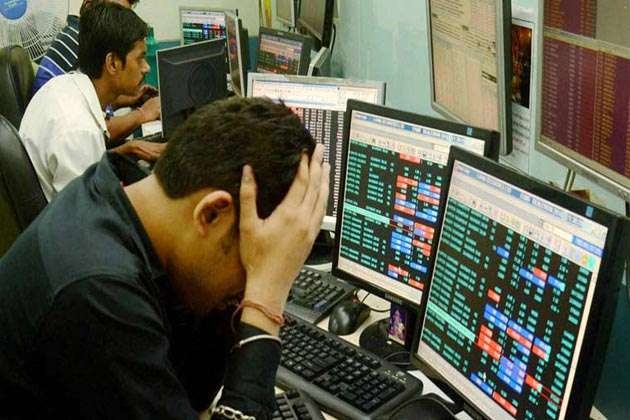
New Delhi: Due to the signs of recession in America and the increase in interest rates in Japan, the Indian market along with other markets of the world experienced a huge fall on Monday. The Sensex closed at 78,759.40 with a fall of 2222.53 points, while the Nifty closed at 24,055 with a fall of 662 points. Investors are likely to suffer a loss of more than 15 lakh crores due to this huge fall. The market capital of BSE was 457 lakh crores on the last working day, which went below 442 lakh crores on Monday.
According to market experts, Indian market may come back on track after the next few days, but mid cap and small cap may take some time to recover. On Monday, markets of other Asian countries declined by an average of 4 percent. Japan's Nikkei fell by 12.4 percent and the US Nasdaq fell by 4 percent. European markets reached a six-month low.
Did the stock market crash
Two main reasons are being cited for the market crash. Last Friday, the US job related report was released, according to which the unemployment rate in the US in July reached a three year high of 4.3 percent. Due to the increase in the unemployment rate in the US, fears of recession have started being expressed. To handle this, there is a strong possibility of the US Federal Bank cutting the interest rate in September.
There is already a slowdown in Europe and China. The price of crude oil is already at its lowest level in eight months. In view of all this, there was a massive sell-off in the markets across the world on Monday due to which the market was affected by the fear of recession at the global level.
The second major reason was that last week the Central Bank of Japan increased the interest rates by 0.25 percent. For more than 15 years, the interest rate in Japan was 0.0-0.1 percent. Due to almost zero interest rate, global investors were taking money from Japanese banks and investing in other countries of the world. Now, if the interest rate is increased by the Central Bank of Japan, then investors will also have to pay interest, which supported the sell-off. On the other hand, the Yen also strengthened against the dollar due to the intervention of the Japanese government.
What is the expert's opinion
Chairman of the Capital Market Committee of PHD Chamber, B.K. Sabharwal says that earlier one dollar was getting 162 yen which has now become 145 yen. This means a direct loss of 13 percent. Due to these reasons, investors associated with Japanese banks sold heavily to avoid losses and keep them to a minimum.
According to Vikram Kasat, market advisory head of PL Capital, apart from these two reasons, the fear of war between Israel and Iran has also affected the market. This fear has become even stronger due to the warning given by America that Iran and Hezbollah will attack Israel in the next 48 hours.
However, experts are also saying that the Indian market is no longer dependent on foreign investors. According to Tanvi Kanchan, business head of Anand Rathi Shares, the panic in the Indian market due to short-term profit selling is not going to last long. Sabharwal said that the market will start becoming normal in two-three days, but mid-cap and small-cap may take some time to recover. There was a similar decline in the market on the day of the election results.
Read More: US Market: US markets saw a sharp decline, AI tensions weighed on investors.
--Advertisement--

 Priya
Priya Share
Share



